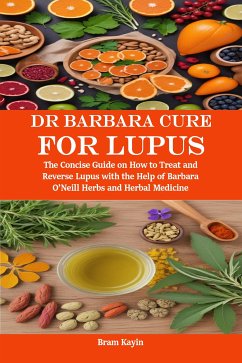Lupus, and more specifically systemic lupus erythematosus (SLE), is a chronic autoimmune illness that is defined by the immune system of the body attacking its own tissues, which results in widespread inflammation and damage. It can be difficult to manage lupus because of the complexity of the disease and the fact that people' symptoms can vary greatly from one another. Medication that suppresses the immune system and pharmaceuticals that reduce inflammation are frequently used in conventional treatments. These medications can have substantial adverse effects.
In this particular setting, Barbara O'Neill's experience in natural therapies provides an alternative method of treatment to the conventional medical practices previously utilized. She is an advocate for the utilization of particular herbs that are recognized for their ability to modulate the immune system, reduce inflammation, and promote healing. Patients suffering from lupus may be able to ease symptoms, reduce flare-ups, and enhance their overall quality of life by adding these herbs into their daily routines.
Turmeric, ginger, aloe vera, Echinacea, and licorice root are some of the powerful herbs that will be discussed in this investigation into the herbal remedies that Barbara O'Neill recommends for lupus. Each of these herbs has its own set of advantages, and they can be consumed in a variety of prepared forms, including teas, extracts, and dietary supplements. Patients suffering from lupus are able to make educated decisions on the incorporation of natural remedies into their healthcare regimen if they have a thorough awareness of the characteristics and applications of these herbs.
In this particular setting, Barbara O'Neill's experience in natural therapies provides an alternative method of treatment to the conventional medical practices previously utilized. She is an advocate for the utilization of particular herbs that are recognized for their ability to modulate the immune system, reduce inflammation, and promote healing. Patients suffering from lupus may be able to ease symptoms, reduce flare-ups, and enhance their overall quality of life by adding these herbs into their daily routines.
Turmeric, ginger, aloe vera, Echinacea, and licorice root are some of the powerful herbs that will be discussed in this investigation into the herbal remedies that Barbara O'Neill recommends for lupus. Each of these herbs has its own set of advantages, and they can be consumed in a variety of prepared forms, including teas, extracts, and dietary supplements. Patients suffering from lupus are able to make educated decisions on the incorporation of natural remedies into their healthcare regimen if they have a thorough awareness of the characteristics and applications of these herbs.









